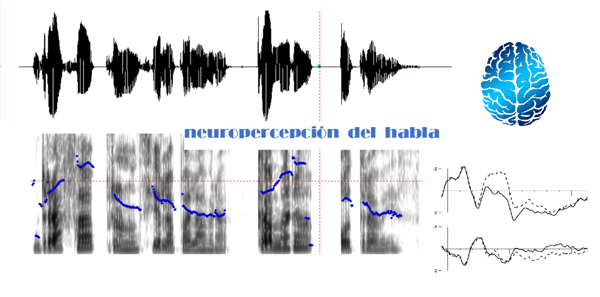Recenty published:
Broś, K. (2025). Remote data collection in the study of ongoing sound change in Spanish – a comparative analysis. Laboratory Phonology: Journal of the Association for Laboratory Phonology, 16(1), pp. 1–49. DOI: https://doi.org/10.16995/labphon.10557
Broś, K., Czarnocka-Gołębiewska, K., Mołczanow, J. and Szupica-Pyrzanowska, M. (2025). • The role of expertise in coping with accents during simultaneous interpreting: A pupillometric study. Interpreting, 27(1), pp. 52-86. DOI: https://doi.org/10.1075/intp.00117.bro
Broś, K. & Krause, P. A., (2024). Stop lenition in Canary Islands Spanish – a motion capture study. Laboratory Phonology 15(1). doi: https://doi.org/10.16995/labphon.9934
Broś, K. (2023). Using social media as a source of analysable material in phonetics andphonology – lenition in Spanish. Linguistics Vanguard, 2023. https://doi.org/10.1515/lingvan-2021-0153.
Broś, K., Nazarov, A. (2023). Modelling opacity and variation in
Gran Canarian Spanish apocope. Glossa: A journal of
general linguistics.
Broś, K. (2023). Review of Christoph Gabriel, Randall Gess, and Trudel Meisenburg’s “Manual of Romance Phonetics and Phonology”. Phonology.
Broś, K. (2023). Acoustic cues to stress perception in Spanish – a mismatch negativity study. Proceedings of INTERSPEECH 2023.
Broś, K. (2023). Compensatory breathiness in Canary Islands Spanish – an acoustic study of vowels in /s/ weakening contexts. Proceedings of the International Congress of Phonetic Sciences.
Recent projects:
SONATA BIS -- 4-year research grant awarded by the Polish National Science Centre for the project "Cognitive flexibility, cognitive load, and interpreting performance in simultaneous interpreters as a function of age". The aim of the project is to study how interpreters' abilities change as they get older, focusing on their cognitive flexibility, i.e. the capability of adapting to a change of task or problem difficulty. For this purpose, me and my team will test over 160 professional interpreters using eyetracking technology, AI and cognitive tests to find out: 1) How interpreters' brains react to different levels of difficulty in the source speech as they age; 2) How interpreters' ability to adapt and switch between languages changes as they age; 3) How interpreters' accuracy in their interpreting changes with age. The project starts at the end of November 2024. The amount of funding is PLN 1.93 million.
Fulbright Senior Award -- 3-month stay at California State University Channel Islands to implement a motion capture project involving the deletion and or retention of final consonants in American English by monolingual and heritage Spanish speakers. Planned dates: Feb-May 2025.
Nowe Idee (New ideas) grant funded by the Ministry of Higher Education in Poland as a part of the Excellence Initiative; title: "Influence of accented speech on language processing during simultaneous interpreting", in collaboration with Janina Mołczanow, Małgorzata Szupica-Pyrzanowska and Katarzyna Stachowiak-Szymczak (University of Warsaw), as well as with the Eye-tracking Research Centre of the SWPS University and the Multilingualism Research Hub (University of Warsaw). Publication from this project is under review.
French Government Research Scholarship - research stay in Nice (France) -- "Cross-linguistic differences in the perception of subphonemic features – an EEG study", in cooperation with Tobias Scheer (Université Côte d’Azur), summer 2021.
The SONATA project financed by the Polish Science Foundation is now ongoing. Together with Jan Wołłejko and Adam Sikorski, and in cooperation with Marzena Żygis, we are now analysing phonetic data from over 50 native speakers of Gran Canarian Spanish. We are investigating specifically the behaviour of underlying non-continuants, which includes various degrees of stop voicing and approximantisation and their consequences in the form of perceptual difficulties and inventory shifts. Project finalised in May 2022.
My academic profile
My primary academic interest is phonology. I love studying the sounds of languages and the laws responsible for them. I remember my first phonology lecture with professor Jerzy Rubach in 2003 - that was the day when I decided to become a phonologist and I managed to pursue this plan in the later years of my university education.
I specialise in Optimality Theory and stratal accounts of phonological interactions, but I also aim at looking at the bigger picture in my research: how sound changes and shifts are governed by higher-level laws. I combined the strictly formal OT approach to language systems with language change and sociolinguistics in my PhD thesis on Chilean Spanish. In the future, I hope to further develop this interdisciplinary approach in my study of different linguistic phenomena within the Spanish language and beyond. Further information on my phonological, phonetic and sociolinguistic research is available under the Publications and Projects tabs on the left.
I have spent years teaching English pronunciation and phonetics, which is another line of inquiry for me, at least from the methodological perspective. My reflections on the subject will be available under the Teaching tab.
As a professional translation and interpreter, I am glad that I can combine my practical knowledge with theoretical background in linguistics and teaching methodology during my translation and interpreting workshops at the University of Warsaw and at SWPS. More information on this part of my academic duties can also be found under the Teaching tab.
.jpeg)

